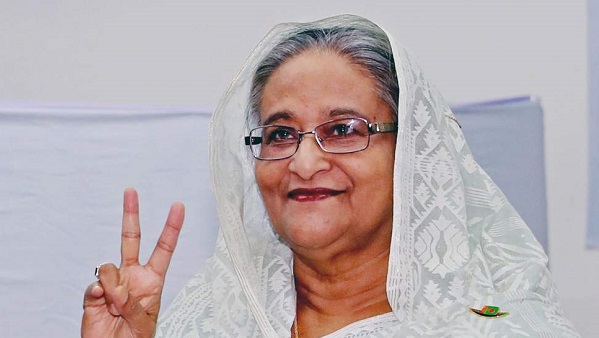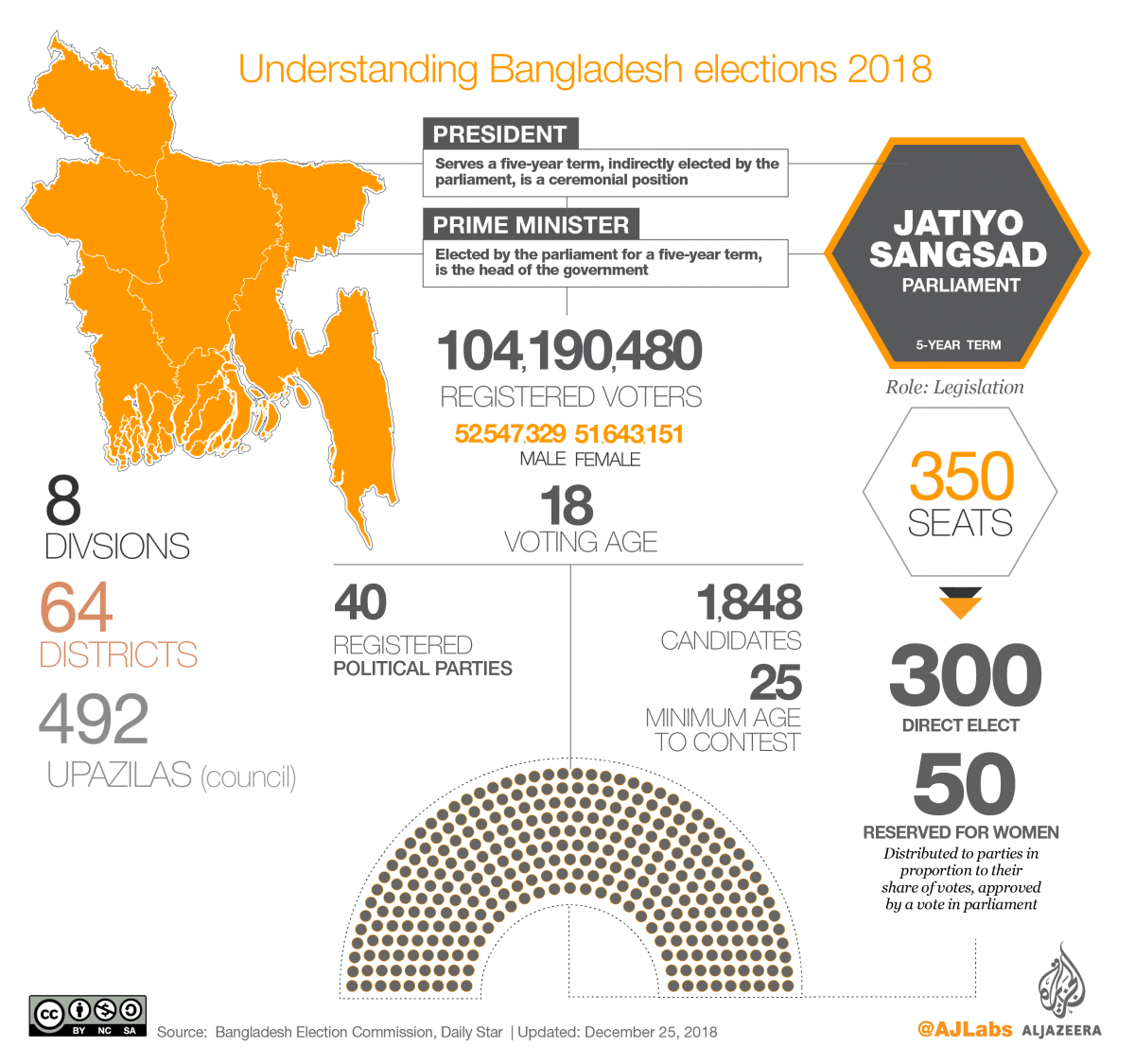Bangladesh elections 2019
January 2, 2019 | Expert Insights

Sheikh Hasina’s ruling Awami League returned to power with a landslide victory over Khalida Zia’s Bangladesh Nationalist Party (BNP) in an elected tainted with violence.
Background
Modern Bangladesh emerged as an independent nation in 1971 after breaking away and achieving independence from Pakistan in the Bangladesh Liberation War. The country's borders coincide with the major portion of the ancient and historic region of Bengal in the eastern part of the Indian subcontinent, where civilisation dates back over four millennia. After independence, the new state endured famine, natural disasters, and widespread poverty, as well as political turmoil and military coups. The restoration of democracy in 1991 has been followed by relative calm and rapid economic progress. Bangladesh is today a major manufacturer in the global textile industry.
Khaleda Zia, former PM and leader of BNP and Sheikh Hasina, the current PM, are known as the 'Battling Begums' for their bitter rivalry that has poisoned Bangladeshi politics for nearly three decades. Both warring women have also laid claim to aspects of Bangladesh's independence. Recently, ex-PM Zia was sentenced to rigorous imprisonment for five years on February 8 for embezzling 21 million takas in foreign donations meant for a charity named after former President Ziaur Rahman, Zia's husband. Her elder son and heir apparent, Tarique Rahman, and four others were also sentenced to 10 years in prison. Nearly a month later Zia was granted bail.
The recently concluded Bangladeshi general election will elect the members of the Jatiya Sangsad, the parliament of Bangladesh. The previous general elections, which took place in 2014, were boycotted by the main opposition party, the Bangladesh Nationalist Party led by three-time former Prime Minister Khaleda Zia. As a result, the Awami League led by Prime Minister Sheikh Hasina won a walkover, with its candidates declared victors in 127 of the 154 uncontested seats by default.

Analysis
Sheikh Hasina Wajed, Bangladesh’s prime minister, has been declared the winner of the general election by the Election Commission, against a backdrop of violence and claims by the opposition of vote-rigging and calls for a fresh vote.
By early morning local time on 31 December 2018, Sheikh Hasina’s Awami League party and its coalition partners had won 287 seats of the 298 declared in the 300-seat parliament. The main opposition Bangladesh Nationalist party had won just six seats. The head of Bangladesh’s Election Commission said Sheikh Hasina had won, giving her a third straight term.
Sheikh Hasina, who has governed Bangladesh since 2008, announced an early victory in her own constituency of Gopalganj, where she won more than 200,000 votes. This contrasts with 123 votes for her main opposition challenger. “We believe in democracy and we will accept the people’s mandate,” she said on Sunday morning.
There have been reports of violent clashes, especially in rural areas. In total, 17 people are reported to have been killed, including supporters of both main parties. Bangladesh’s Election Commission has promised to investigate allegations of vote-rigging across the country. Some 47 opposition candidates withdrew before polling closed. Two election commissioners said that they saw no polling agents from the main opposition alliance when they went to cast their votes in two separate centres in Dhaka.
Counterpoint
Ms. Hasina’s party has won praise for turning the country into one of Asia’s fastest-growing economies. But she has also been accused by opponents of eroding democratic institutions. The BNP boycotted the last election in 2014. After it decided to contest this year’s poll — widely seen as a test of the government’s commitment to democracy — the opposition party said that thousands of its members and supporters had been arrested.
Assessment
Our assessment is that Sheikh Hasina’s latest electoral victory gives her a third straight term as the PM of Bangladesh. We believe that this new mandate will give Sheikh Hasina an opportunity to implemented her vision for the nation, which has met with a lot of criticism in the recent past. We also feel that the continued prosecution of the opposition and dissenters is counterproductive.
India Watch
Sheikh Hasina's victory assures India of a reliable partner at the helm in Bangladesh. As India also goes to the polls within the next six months, it remains unclear who will win the General Election. However, no change is expected in India's Bangladesh policy irrespective of which party wins the election. Dhaka is the pivot for PM Modi's ambitious 'Look East' policy and the incoming government should aim to develop on the success of this policy.
Read More:








Comments